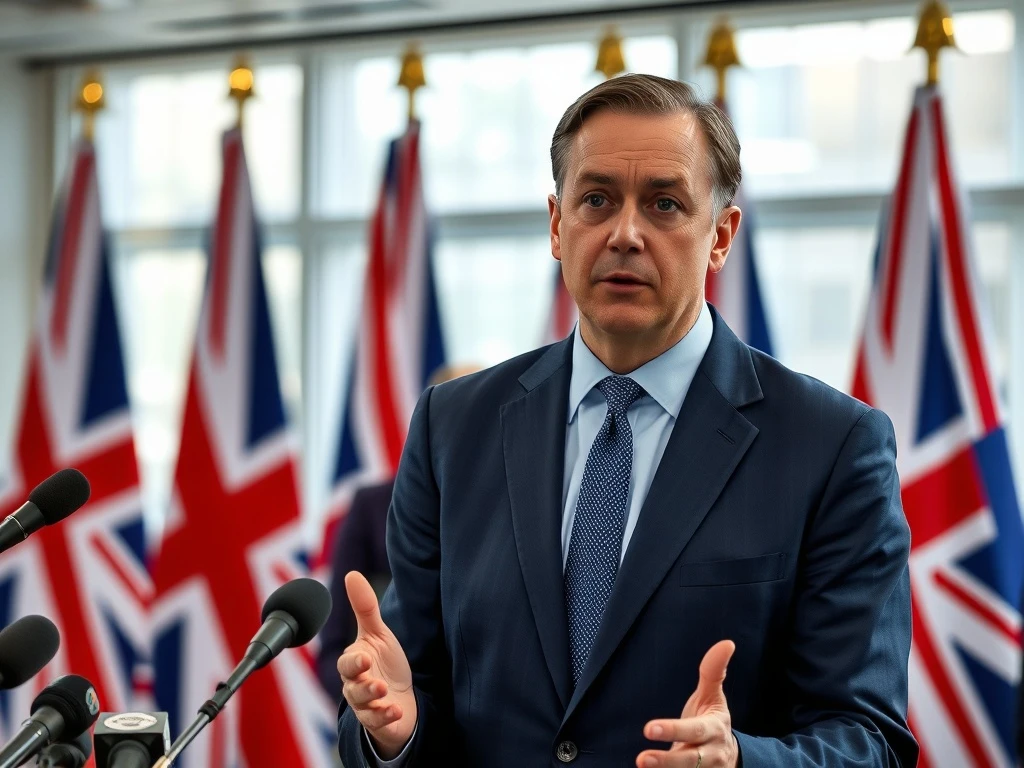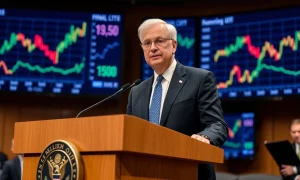UK Chancellor Rachel Reeves faces mounting pressure from business leaders as Asda’s chairman delivers a stark warning about the damaging effects of current taxation policies on economic growth and consumer welfare.
Rachel Reeves Taxation Approach Draws Business Backlash
Allan Leighton, Asda’s chairman, has issued a direct challenge to Chancellor Rachel Reeves. He criticizes the government’s current fiscal strategy. Consequently, retailers face significant financial pressure. Moreover, consumers bear the ultimate burden. Leighton emphasizes that growth comes from business investment, not government taxation.
Retail Sector Struggles Under Tax Burden
The British Retail Consortium reports alarming cost increases. Specifically, annual sector costs have jumped by £7 billion. This surge results from multiple factors:
- Higher employer national insurance contributions
- Increased minimum wage requirements
- New packaging taxes implementation
Major retailers including Tesco, Sainsbury’s, and John Lewis jointly expressed concerns. They warned that additional tax hikes would force price increases. Ultimately, consumers would face higher shopping bills.
Economic Consequences of Rachel Reeves Taxation Policies
Food inflation has reached concerning levels. Currently, it stands at 4.9 percent. Experts predict it might climb to 6 percent later this year. Meanwhile, poorer households experience higher inflation rates than wealthier ones. This development contradicts government claims about protecting lower-income families.
Political Pressure Mounts on Rachel Reeves
The Chancellor faces complex challenges. Labour’s fiscal rules restrict additional borrowing. Manifesto commitments prevent increases to income tax, VAT, and national insurance rates. Consequently, Reeves must explore alternative revenue sources. Options under consideration include:
- Mansion tax on expensive properties
- Higher business rates for large stores
- New levies on banking and gambling sectors
Historical Parallels and Economic Warnings
Economists draw comparisons to the 1976 financial crisis. Without significant spending restraint or increased investment, Britain risks similar economic turmoil. The International Monetary Fund bailout serves as a cautionary example. Business leaders urge the government to learn from past mistakes.
The Path Forward: Investment Over Taxation
Leighton’s message remains clear and consistent. He advocates for strategic investment rather than continued taxation. Growth originates from organizations and companies, not government mandates. Without investment capacity, economic expansion becomes impossible. The government must create conditions conducive to business investment.
FAQs
What specific taxes are affecting retailers?
Retailers face increased costs from higher employer national insurance contributions, elevated minimum wages, and new packaging taxes, totaling £7 billion annually.
Why can’t Rachel Reeves borrow more money?
Labour’s fiscal rules prevent additional borrowing, requiring the government to balance budgets through other means while honoring manifesto tax pledges.
How does current inflation affect different income groups?
Poorer households experience 4.1% inflation while wealthier households face 3.8%, contradicting government claims about protecting lower-income families.
What historical economic situation are experts referencing?
Economists reference the 1976 UK financial crisis when the country required an IMF bailout, warning similar risks exist without policy changes.
Which major retailers support Asda’s position?
Tesco, Sainsbury’s, John Lewis, and other major retailers jointly wrote to the Chancellor expressing concerns about additional tax increases.
What alternative revenue sources is the government considering?
Options include mansion taxes, higher business rates for large stores, and new levies on banking and gambling sectors.








